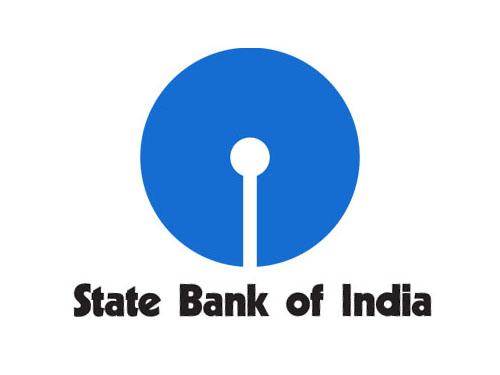Target SBI PO : English Day 31
Want to Become a Bank, Central / State Govt Officer in 2020?
Join the Most awarded Coaching Institute & Get your Dream Job


Now Prepare for Bank, SSC Exams from Home. Join Online Coure @ lowest fee
Lifetime validity Bank Exam Coaching | Bank PO / Clerk Coaching | Bank SO Exam Coaching | All-in-One SSC Exam Coaching | RRB Railway Exam Coaching | TNPSC Exam Coaching | KPSC Exam Coaching
Target SBI PO : English Day 31
Directions (1-10): Read the following passage carefully and answer these questions given below it. Certain words/phrases have been printed in BOLD to help you locate them while answering some of the questions.
In 2002, when commodity exchanges were allowed to start electronic platform-based trading in agro commodities, the basic assumption was that a system would develop where farmers and other stakeholders in the agricultural sector would be able to hedge their production of agro commodities and save themselves from troubles like impact of deficit and excess monsoons and lack of price information across different markets. Instead of serving its original purpose, however, commodity exchange became a den of speculation. There were instances where the weekly turnover of a commodity like potato production on exchange was higher than the annual potato production on exchange was higher than the annual potato production in the country. Whenever speculative activity overshot its limits, the regulator, forward market commission and government just reacted by banning trading of that particular commodity futures for some time and when thing cooled a bit, it was business as usual. But when the forward market commission was merged with the securities and exchange board of India (SEBI) it was being expected that the regulator would take steps to bring more transparency in working of the commodity exchange. Though SEBI started taking incremental measures in the right earnest, the big step, which would have major impact on the working of commodity markets in India, was announced only recently. SEBI announced guidelines for warehousing norms in the commodity derivatives market for agricultural and agri-processed commodities, which traded on commodity ex-changes. As per the new guidelines, warehouse service provider (WSP) will now have to follow a certain basic minimum criteria to become eligible for acting as warehouse for commodity exchanges. They would have to be corporate, need a work force, a certain amount of net worth and area have been clearly marked out on their obligation toward exchanges and customers. The period of validity of license to act as WSP would be conditions in renewal guidelines, which would ensure that WSP maintains a certain level of standard in their operations. First, WSP has been made more responsible for quality and also the quantity of product stored with then till the date of expiry. Till now, warehouse providers did not had any such responsibility and would wash their hand off by taking refuge in the fact that they did not come under any regulatory authority. Due to this loophole, some of WSP in connivance with commodity market players were able to take investor of commodity market for a ride and manipulate the price of commodity close to the date of delivery of that product. End result: genuine investor and farmer would never enter into commodity market for fear of bad delivery. The second feature of guideline, investor complaint would be given weight age in deciding whether the renewal of licence of WSP should be done or not. This would ensure that WSP do provide correct service to investors at all point of time and not only at the time of renewal. A proper warehousing system would lead to an increase in genuine investor volumes on commodity exchanges. This, in turn, would reduce the impact cost of trade in any commodity and help commodity exchanges achieve their original purpose of helping farmer and other stakeholders in hedging their produce.
1) The term ‘den of speculation’, as used by the author signifies:
(a) Full of given work
(b) The commodity exchange became not viable
(c) Traders indulging in commodity price fluctuations and also the volume growing substantially
(d) Farmers playing a vital role in the commodity exchange transactions.
(e) None of these
2) According to the passage the renewal of WSP licence is done:
(a) Automatically every three years
(b) Whenever applied for
(c) By giving weight age to investor complaints only.
(d) By measuring standard of quality and quantity of product stored and also based on weightage of investors complaints.
(e) No renewal of licence is regulated.
3) Basic assumptions that accompanied electronic platform-based trading in agro commodities were, according to the Author
(a) To provide for hedging in agro commodities
(b) To facilitate price information
(c) To save farmer for monsoon fluctuations
(d) All the above
(e) None of the above.
4) Banning trading of a particular commodity is resorted to by FMC when:
(a) The supply of that commodity is less
(b) The supply of that commodity is more
(c) The speculative activity overload its limits in that commodity
(d) Import of that commodity is cheaper
(e) None of these
5) On commodity exchanges, which of the following will ensure genuine investor volumes?
(a) When a few of farmers participate in the process
(b) When more of traders participate in the process
(c) When import/exports are substantial
(d) When a proper warehousing system is in vogue
(e) When all the above factors are manifest
6) The term ‘to take the investors for a ride’ means….
(a) To favour the investor unduly.
(b) To take the farmer on a town
(c) To cheat the genuine market players
(d) To close the market temporarily
(e) None of the above
7) What is the some of the author in the damage?
(a) Critical
(b) Concern
(c) Comic
(d) Comparison
(e) Aggressive
8) According to the passage?
(a) SEBI was merged with FMC
(b) FMC was given additional powers and jurisdiction.
(c) FMC was declared as a WSP.
(d) FMC was merged with SEBI.
(e) None of the above
9) The term ‘derivative’ as used in the passage means:
(a) Implied by another concept
(b) Understood by another concept
(c) Developed from another form
(d) A form of multiplication
(e) None of the above
10) Synonym of ‘obligation’ as used in the passage is
(a) duty-bond
(b) Leisure
(c) Novelty
(d) Innovativeness
(e) Agreement
Note:
- If you have any Doubts, Comment us
- Share this page to your friends and Help them




